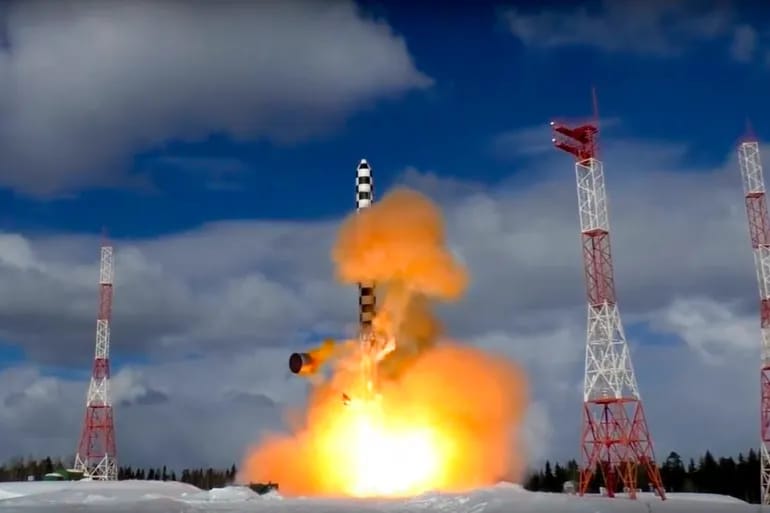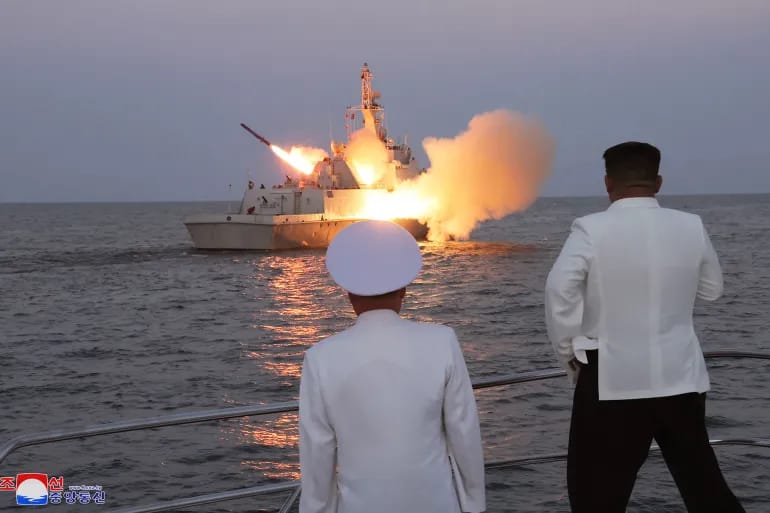In a development that has sent ripples across the international security landscape, Russia has officially deployed its formidable RS-28 Sarmat intercontinental ballistic missile system into “combat duty.” The announcement was made by Yuri Borisov, the head of the Russian space agency Roscosmos, raising concerns and uncertainties about global stability. The RS-28 Sarmat, often known by its NATO codename “Satan,” is believed to have the capability to carry up to 15 nuclear warheads and can reach any location worldwide. This move marks a significant escalation in Russia’s military capabilities and demands close attention from the global community.
Putin’s Bold Claim: Sarmat to Make Foes ‘Think Twice
Russian President Vladimir Putin has long touted the RS-28 Sarmat as a game-changer in the realm of global security. He stated earlier this year that this advanced weapon system would compel Russia’s adversaries to reconsider their threats. Putin’s remarks came after the RS-28 Sarmat successfully completed its testing phase, demonstrating its readiness for deployment. While the White House National Security Council spokesman, John Kirby, refrained from confirming these reports, the implications of Russia’s latest move are undeniable.
Unveiling the Formidable RS-28 Sarmat
The RS-28 Sarmat is a highly advanced underground silo-based missile system that has been designed to replace Russia’s aging fleet of intercontinental ballistic missiles (ICBMs). Weighing over 200 tonnes and boasting a range of approximately 18,000 kilometers (11,000 miles), the RS-28 Sarmat possesses the capability to carry a payload of up to 15 nuclear warheads, according to Russian officials. NATO’s military allies have long referred to it by its ominous codename, “Satan.”
One of the most concerning aspects of this missile system is its short initial launch phase. This rapid launch capability leaves little time for surveillance systems to detect and track its takeoff, potentially reducing the effectiveness of early warning systems. This feature adds a layer of unpredictability to the RS-28 Sarmat’s deployment, which has raised alarms among experts and policymakers alike.
Global Security Implications as Sarmat Takes Center Stage
The deployment of the RS-28 Sarmat inevitably has significant implications for global security. Russia’s move to put this formidable missile system on “combat duty” underscores its commitment to modernizing its military arsenal and enhancing its strategic deterrence capabilities. The RS-28 Sarmat’s extended range and increased payload capacity pose a challenge to existing international arms control agreements, potentially sparking concerns among nuclear-armed nations and prompting a reevaluation of their own strategic postures.
The international community, already grappling with numerous security challenges, now faces the urgent task of managing this new development. As Russia asserts its military might with the RS-28 Sarmat, the delicate balance of global security enters a precarious phase. The response from other world powers and the potential ramifications for arms control and disarmament initiatives will undoubtedly shape the geopolitical landscape in the coming years.
Russia’s decision to put the RS-28 Sarmat intercontinental ballistic missile system on “combat duty” demands a comprehensive and measured response from the international community. As this formidable weapon takes its place on the world stage, the global security landscape stands at a critical juncture, where diplomacy and strategic cooperation will play pivotal roles in shaping the future of international relations.
















